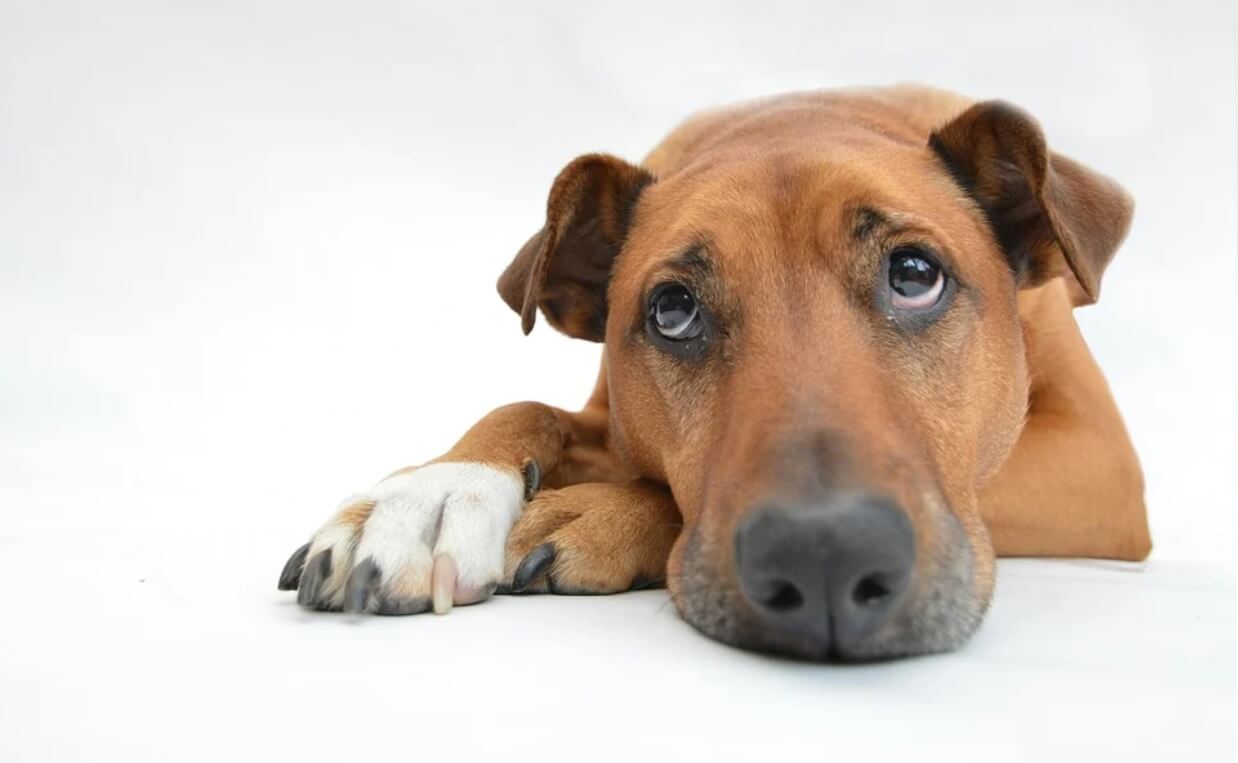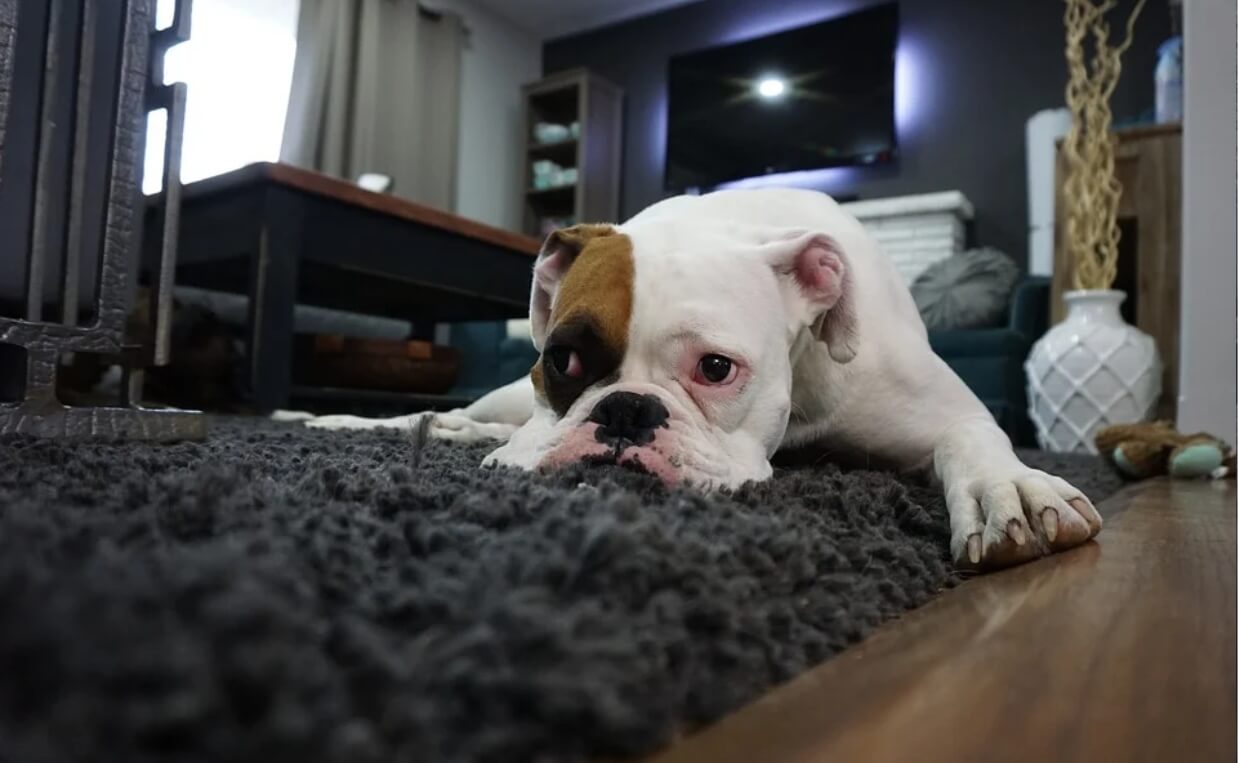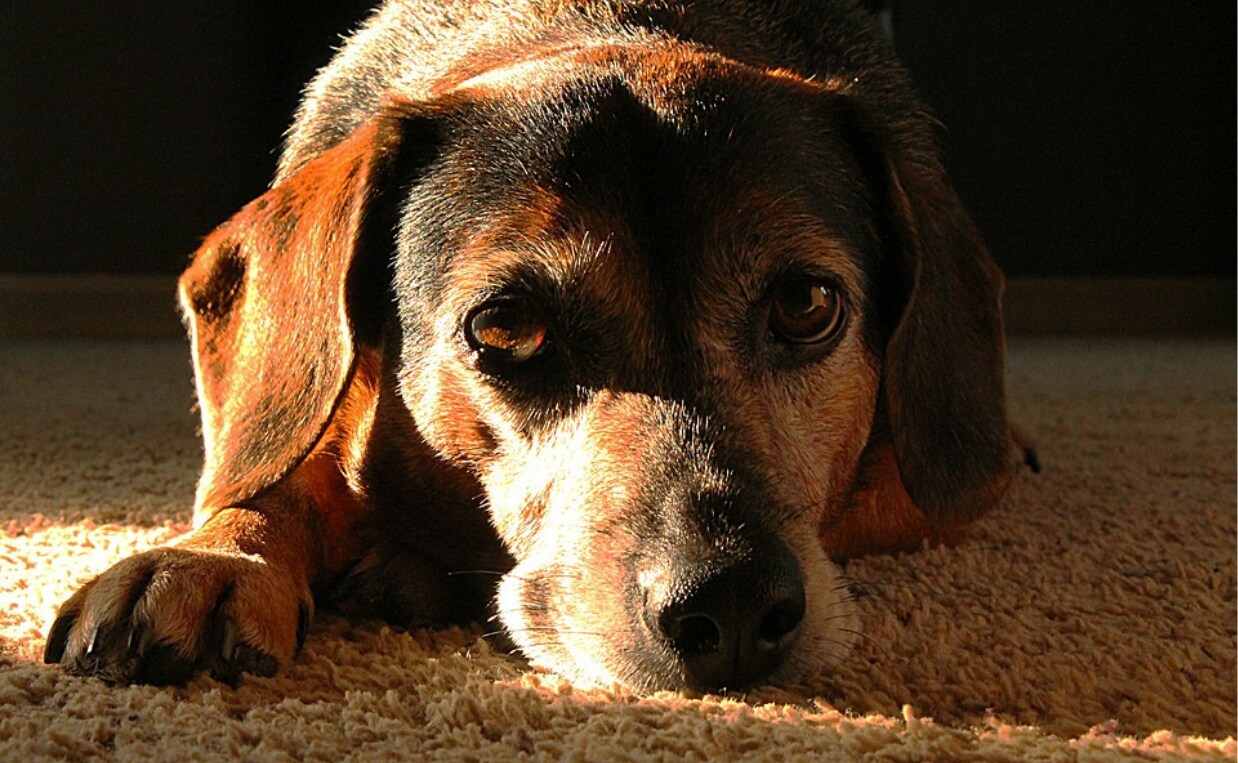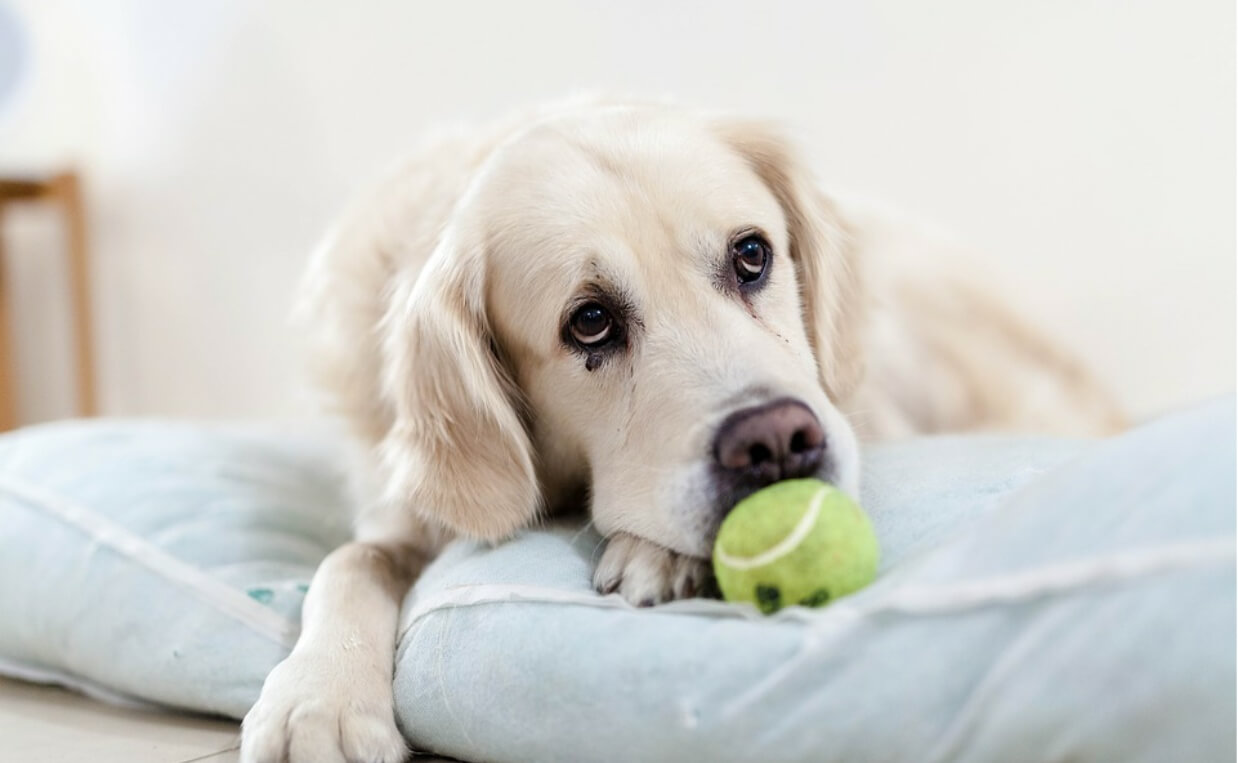
When a dog loses another pet or person they are socially bonded to, they may show signs of grief.
This is an especially timely topic for Canine Campus. Recently a long-time customer who had been with us since we opened in 1993 (three generations of dogs were enrolled) passed away. While her dog (thankfully) has been adopted by family members, the dog is unfamiliar with them as he usually boarded here while she visited them out of town. Losing his “mama”, familiar routines (i.e. table scraps after dinner, sleeping in the bed with her, etc.) as well as his Canine Campus friends has certainly been challenging for him, although he seems to be adjusting to his new home well.
Imagine how hard it is for a dog to first understand their owner won’t be coming back, and then adjust to a new home, new routines, new rules, etc. Establishing a new, comfortable social structure in the home is important for everyone, but even more so for dogs.
While it’s important to remember each dog may respond to loss differently, it is common for dogs to express their grief in the following ways:
- Loss of appetite
- Change in sleep patterns
- Lethargy
- Sleeping more or less than usual
- Accidents in the house
- Separation anxiety
- Whimpering, whining and even howling
- Personality changes
- Declining health
Dogs process things emotionally and intuitively so the grieving process is often difficult for them because their sense of loss is so profound and overwhelming.

Here are six ways you can help a grieving dog.
-
Recognize your dog is grieving.
Let your dog know you recognize he or she is grieving, you understand what is happening and you are there for them. Ignoring their grief only intensifies their feelings.
-
Take care of your dog’s physical needs.
Your dog needs to be healthy to be strong enough to grieve. Also, be aware prolonged grieving may case physical ailments that need to be addressed. Just like humans, long-term stress can cause physical problems like stomach issues, heart issues, obesity, depression, anxiety and others.
Take grieving seriously. Don’t make the mistake thinking your pup’s grief isn’t real because he’s “just a dog”. There have been cases where a dog feels so traumatized and stressed he or she will stop eating and drinking, and have died because their kidneys or other organs shut down.

-
Give your dog extra attention.
While you don’t want to “hover” or be a “helicopter dog parent”, your dog may need some extra bonding time with you. Ways to do this include:
- Special outings
- Snuggle time on the couch
- Special healthy treats
- Play games together
- Exercise together
-
Bring your dog to daycare
Dogs are descended from wolves, which means they are pack animals. They have an innate need to be around and interact with others. Being with other canines and human caregivers can help them feel better, place their focus on playing and being in the pack and get the physical exercise they need as an outlet for their grief.
-
Maintain a normal routine.
Consistency and stability is important for a grieving dog. Keep your regular routine, such as a familiar feeding or playtime. This can help with the transition to life without the person or pet who has passed. Wild animals have to move on pretty quickly in order to survive, so too, your dog needs to learn he or she has to keep going without their loved one.

-
Don’t rush to add a new pet to the household.
If your dog is experiencing grief due to a loss of an animal companion, be careful about introducing a new dog into the family right away. Your dog may need some time to process his or her grief, just like humans often do. Adding a new pet into the household may confuse and upset your dog, which may make it harder for everyone to adjust to the new member.
Be patient with your dog. It may take weeks, even months, for your dog to make sense of the loss. Grieving is your dog’s way of honoring his or her friend, just as it is for people, so allow your dog the time and space to grieve. While extremely long periods of grieving aren’t common in dogs, simply showing patience and understanding can help an anguished dog cope.

Dogs live in the moment so they are capable and willing to be fully present in the here and now. But time is a relative concept in the life of a dog, so sometimes the moment is in the past. The imprints of the past stay with them and it’s up to you to help them erase the sadness and replace it with happy moments. Help fill the darkness of loss with the light of new, happy memories.
Has your dog experienced grief? In what ways did you help him or her through the grieving process?

 Everything You Need to Know About Flying with Your Dog
Everything You Need to Know About Flying with Your Dog 10 Tips to Make Moving with Dogs Easier
10 Tips to Make Moving with Dogs Easier 10 Tips to Help Your Dog Be a Good Neighbor
10 Tips to Help Your Dog Be a Good Neighbor 7 Surprising Ways Your Dog Says I Love You
7 Surprising Ways Your Dog Says I Love You 14 Best Dog Anxiety Toys to Keep Your Dog Calm
14 Best Dog Anxiety Toys to Keep Your Dog Calm






Leave a Reply